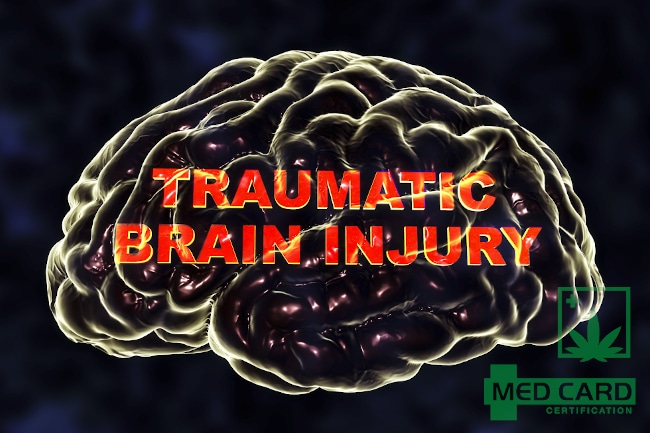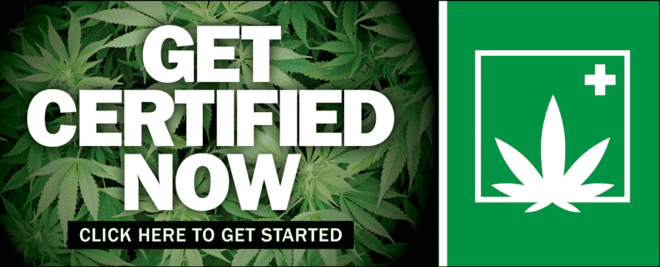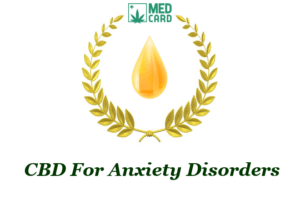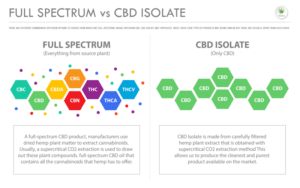
Treating Traumatic Brain Injury with Medical Marijuana
- The use of medical marijuana for treating traumatic brain injury (TBI)
- Also known as traumatic brain encephalopathy (TBE)
- Which states consider TBI to be a qualifying condition
- Which cannabis strains are ideal for treating symptoms of TBI
- Potential side effects of cannabis for traumatic brain injuries.
Can medical marijuana be used to treat the medical condition known as traumatic brain injury (TBI) or traumatic brain encephalopathy (TBE)?
There is a body of clinical evidence and a mountain of anecdotal evidence to support the idea that medical marijuana can indeed both help to treat and even to prevent a potentially debilitating condition.
TBI is caused by trauma to the head resulting in damage to the brain. The condition is characterized by symptoms such as impaired cognitive and motor abilities, chronic pain, sleep disorders, depression and anxiety, apathy, impulsive behavior, and potentially seizures and spasticity.
Athletes who take part in high impact sports such as football and boxing are especially susceptible to CTI/CTE.
A report by New Frontier Data estimates that “anywhere from 80% to 90% of football players use some type of cannabis medicine” to treat symptoms ranging from chronic pain to emotional issues to impaired motor capabilities. The report suggests that cannabis might not only treat the symptoms of CTI but might actually protect the brain from these conditions.
The report states:
“On the positive side of the discussion, some experts suggest that cannabis may hold the potential to not only reduce but actually reverse the effects of CTE. Tetrahydrocannabinol (THC), the psychoactive compound in cannabis, has been shown to stimulate parts of the brain involved in healing after a traumatic brain injury.”
There is also a range of mildly-traumatic and non-traumatic brain injuries that produce symptoms which are commonly treated with medical marijuana.
Let’s take a look at some of these various conditions, the symptoms that can arise as a result, and how medical marijuana can be used to treat them.
Three types of traumatic brain injuries that might benefit from medical marijuana
TBE/TBI is part of a larger category of brain injuries collectively known as acquired brain injury (ABI). ABIs including any brain injuries which are not hereditary, congenital, degenerative, or induced by birth trauma.
ABIs can be divided into three categories:
- Traumatic brain injuries (TBI/CTE)
- Sports injuries
- Assaults
- Accidents
- Mild traumatic brain injuries (MTBI or MBI)
- Concussion
- Minor head injury
- Non-traumatic brain injuries
- Stroke
- Aneurysm
- Tumor
- Meningitis
Mild traumatic brain injury (MTBI) can result from any forceful motion of the head such as during a car accident, or an impact to the head. If the immediate short-term effects last shorter than 30 minutes, the injury is considered a mild traumatic brain injury. TBI, on the other hand, is characterized by ongoing changes in brain function.
Clinical and scientific studies on cannabis for TBI and TBE.
There are a number of scientific studies that have show that the compounds produced in the resinous flower clusters of the female cannabis plant can be used safely and effectively to treat a range of symptoms associated with TBI and TBE.
One study done in Brazil in 2013 showed that CBD could regenerate brain cells in mice, “specifically in the areas of the brain attributed to depression, anxiety, and chronic stress—the symptoms of CTE.”
And a year later, in 2014, a Harbor-UCLA Medical Center study found that patients who used cannabis were less likely to die as a result of head injury. The study showed a decrease in death due to TBI of 18.4 percent for cannabis users.
There are also numerous studies focused on particular symptoms that are associated with brain injuries such as chronic pain, seizures, spasticity, anxiety, and depression. As well, there are studies that suggest that cannabis can provide some measure of protection and healing properties for neurons. You can find links to these studies at the end of this report.
How to use medical marijuana to treat TBI
The three most common delivery methods for medical marijuana patients suffering from TBI and TBE are smoking dried cannabis flower, vaporizing (“vaping”) cannabis oils, and eating cannabis-infused foods (“edibles”).
Smoking dried marijuana flower causes cannabinoids in the plant to vaporize. When inhaled, marijuana smoke or vapor has a powerful and immediate effect.
Edibles require more time to take effect — 30 minutes to an hour — but the effects are longer lasting. The use of edibles is recommended for patients with lung conditions as smoking marijuana has been shown to cause chronic bronchitis in some patients.
Also, it’s important to avoid black market cannabis products — especially cannabis-infused vape cartridges as these products have been shown to sometimes include ingredients that can cause serious lung injuries and even death.
There are also a few other delivery methods that you might find at your local dispensary that are worth mentioning such as sublingual tinctures, cannabinoid patches, inhalers, and more.
Side effects of medical marijuana
Although medical marijuana is providing countless patients with relief from a wide array of symptoms, it’s important to point out that the use of cannabis can come with some unwanted side effects.
Common side effects of medical marijuana include:
Oftentimes an effect that is desirable in one patient might be unwanted in another. For example, if a patient needs to remain focused during the day, lethargy would be an unwanted side effect. Whereas a patient who has trouble sleeping might welcome a sedative effect.
- Intoxication
- Changes in appetite
- Lethargy and drowsiness
- Short-term memory loss
- Paranoia (with excessive use of THC)
- Lung disease (smoking and vaping)
- Dry mouth
Summary of medical marijuana for TBI
TBI is a medical condition resulting from head trauma that produces a range of potentially debilitating symptoms. The symptoms of TBI are traditionally treated with prescription medications which often have serious detrimental side effects and can be addictive.
Clinical studies have shown that marijuana can be a safe and effective alternative for treating a number of symptoms associated with TBI/TBE.
Although the use of medical marijuana has been associated with certain mild short-term side effects, it is non-toxic and non-addictive.
More than two-thirds of U.S. states offer some form of medicinal marijuana program and many have legalized or decriminalized the use of marijuana making it a viable option for many patients suffering from the symptoms of CTI and CTE. Be sure to discuss your condition with your doctor and budtender to choose the ideal strains for your symptoms and lifestyle.
How to get a medical marijuana card for TBI
TBI is listed as a qualifying condition for medical marijuana in a few U.S. states (see lists below), and common symptoms of TBI such as pain, nausea, and seizures are listed in most other states offering medical marijuana programs.
Furthermore, more and more states are permitting doctors to decide who should be eligible for a medical marijuana card.
Additionally, there are a number of U.S. states in which anyone age 21 or older may purchase cannabis products legally without a medical marijuana card.
States where TBI is a qualifying condition for a medical marijuana card:
States where TBI patients might be eligible for a medical marijuana card:
- Alaska – pain, nausea, seizures
- Arizona – chronic pain
- Arkansas – pain, nausea, seizures
- California – any debilitating condition
- Colorado – pain, nausea, seizures
- Delaware – pain, nausea, seizures
- Florida – doctor’s discretion
- Hawaii – pain, nausea, seizures
- Iowa – pain, nausea, seizures
- Louisiana – pain nausea
- Maine – doctor’s discretion
- Maryland – pain, nausea, seizures
- Massachusetts – doctor’s discretion
- Michigan – pain, nausea, seizures
- Minnesota – intractable pain
- Missouri – doctor’s discretion
- Montana – pain, nausea, spasticity
- Nevada – doctor’s discretion
- New Jersey – pain, seizures
- New Mexico – chronic pain
- New York – pain, nausea, seizures
- North Dakota – pain, nausea, seizures
- Oklahoma – doctor’s discretion
- Oregon – pain, nausea, seizures
- Pennsylvania – chronic pain, intractable seizures
- Rhode Island – pain, nausea, seizures
- Utah – nausea
- Vermont – pain, nausea, seizures
- West Virginia – pain, nausea, seizures
- Washington D.C. – doctor’s discretion
States where a medical marijuana card is not required for adults 21+
- Alaska
- California
- Colorado
- Illinois
- Maine
- Massachusetts
- Michigan
- Nevada
- Oregon
- Vermont
- Washington
- Washington, DC
The first step in obtaining a medical marijuana card in most states is to consult with a state-certified medical marijuana doctor. A quick phone call to your local marijuana doctor can help you quickly determine if you are eligible for a medical marijuana card.
Medical marijuana strains for TBI
Because TBI and TBE can produce such a wide range of symptoms, and because lifestyles vary, there is no ideal cannabis strain for treating patients with these conditions. Rather, each patient needs to determine the symptoms from which they need relief and then choose a strain conducive to treating that particular symptom given the patient’s lifestyle.
There are two major cultivars of cannabis — Cannabis sativa and Cannabis indica. While indica strains tend to be higher in CBD and sedating terpenes, sativa strains tend to be lower in CBD and sedating terpenes. There are also many hybrid strains that are cultivated to treat a specific set of symptoms.
The difference in the effects of various cannabis strains is determined by the presence or absence of cannabinoids such as THC and CBD, as well as a family of compounds known as terpenes.
For example, if a TBI patient has trouble sleeping at night, an indica or indica-dominant strain would be preferred. Alternatively, patients who need to be alert would be better served with a sativa or sativa-dominant strain.
Terpenes are the oily compounds that give cannabis its distinctive aromas. Also the main constituent of essential oils, terpenes have been used for millennia to treat a wide array of conditions in a practice known as aromatherapy.
While some terpenes are known to increase relaxation and reduce stress, others increase focus and wakefulness. And while some terpenes can reduce appetite, others can increase appetite, and so forth.
The combined effects of the various cannabinoids and terpenes found in a cannabis strain is known as the entourage effect.
Learn more about terpenes and the entourage effect.
It’s important to discuss your symptoms with a qualified marijuana doctor and/or budtender who is educated in which strains are ideal for which set of symptoms.
THC or CBD for TBI and TBE?
Both THC and CBD have benefits for TBI patients. Again, the ideal balance of THC and CBD depends on symptoms and lifestyle and the symptoms from which he or she is suffering.
For example, while THC is often used for treating depression, it can cause anxiety. CBD, on the other hand, provides relief from anxiety. And while THC has the ability to reduce the brain’s response to pain, CBD has the ability to reduce inflammation thereby treating the cause of the pain.
Common effects of indica and indica-dominant strains:
- Pain relief
- Anxiety
- Stress reduction
- Muscle tension and spasticity
- Relaxation and sleep
- Nausea relief
Popular Cannabis indica strains:
- Blueberry Kush
- Bubba Kush
- Northern Lights
- Platinum Kush
- Skywalker
Common effects of sativa and sativa-dominant strains:
- Depression reduction
- Increased focus
- Increased appetite
- Pain relief
Popular Cannabis sativa strains:
- Green Crack
- Jack Herer
- Pineapple OG
- Sour Diesel
- Super Lemon Haze
Symptoms commonly treated with high-CBD strains
CBD strains

Sign Up for Medical Cannabis Today!
For potential patients, if you’re ready, we make it easy to connect with a medical marijuana doctor nearby or online. If you are interested in getting certified, please fill out the MMJ patient registration form below and press submit to get started. See if you qualify today!

MedCard Registration Form


Medical Marijuana Links:
Sources and additional reading
- Cannabis could treat traumatic brain injury, Israeli researchers say
- The Brain and Marijuana
- New Frontier Data – Research Is Running Out the Clock on the NFL’s Cannabis Ban
- Endocannabinoids and traumatic brain injury
- Effect of_Marijuana_Use_on_Outcomes_in_Traumatic_Brain_Injury
- How Does Marijuana Effect Outcomes After Trauma in ICU Patients? A Propensity Matched Analysis
- No Brainer: CBD & THC For Head Injuries
- CBD reduces brain damage and improves functional recovery in a neonatal rat model of arterial ischemic stroke
- CBD reduces neuroinflammation and promotes neuroplasticity and functional recovery after brain ischemia















